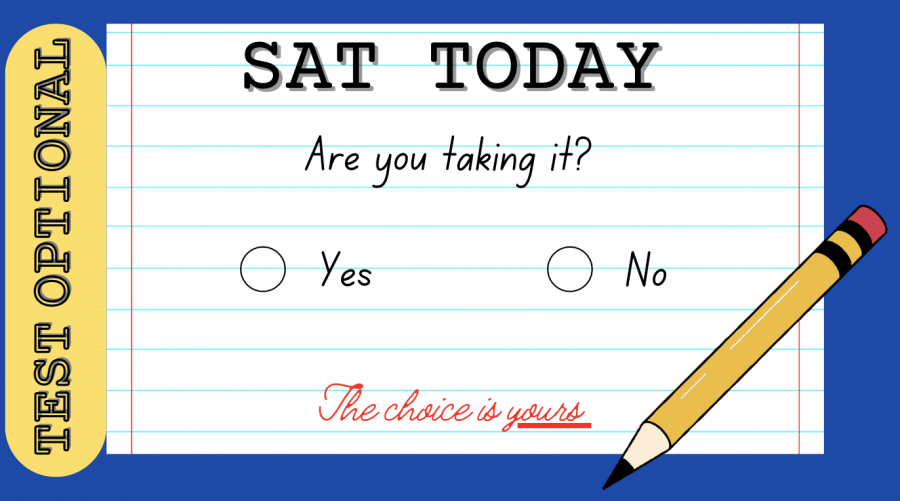SAT Optional for College
The SAT is now optional for most colleges. Students are being pressed the question: “Will you take the SAT?”
November 7, 2022
With seniors graduating from Edison High every year, they look forward to their lives beyond high school. For many, college is the next step. Previously, the Scholastic Aptitude Test, or SAT, had been one of the main methods by which colleges had selected applicants. However, with the onset of the Coronavirus pandemic (COVID-19) in 2020, several colleges have chosen to make the typical standardized test optional, in order to accommodate for the remote setting they were learning in. Nonetheless, even with the reduction of COVID-19 cases, several colleges have opted to retain their “test-optional” status.
The SAT is a nation-wide exam that assesses students on their mathematics, reading comprehension, and writing skills. The score one can receive ranges from zero-1600, and the test has been mandatory for high school students to take. It is administered by the College Board and has been used as one of the grounds for admitting students into college, until now.
There are several types of test-optional colleges. At colleges that are truly test-optional, a student has the option to withhold test-scores if they believe the score is low enough to weaken their application. For “test-flexible” colleges, even if a student chooses not to turn in an SAT score, they can submit others, such as AP tests. For “GPA substitution” colleges, students will not be prompted to submit an SAT score if they meet the college’s minimum GPA requirement. Finally, at “test-blind colleges”, not only is there an option to avoid turning in an SAT score, a student can choose to not have it taken into consideration.
The occurrence of several colleges turning test-optional may have several positive benefits. For one, students may have been unable to prepare for the SATs due to remote learning.
“During COVID, no one took any SATs,” said Aamina Fiyaz ‘24, who will soon be taking the test. “People were at home, colleges were closed, and schools were online. People were unable to prepare, so I think it’s a good thing the SATs are now optional.”
Subha Khan ‘24, who has to also take her SATs later this year, posed the point of how optional SATs will allow colleges to see the full academic profile of a student as opposed to just their test-score: “It is a good thing that it’s optional because not all students can be graded and judged based on one test,” she said. “Everyone has their own strengths and weaknesses and not many people are able to do standardized testing while they perform very good in their classes.”
Owen Chan ‘23, who took the SAT last year, said that the SAT being non compulsory will lead to “the scores on the SAT [being] unable to limit anyone’s opportunities.”
There are several test-optional colleges and universities for those who are seeking them. Some that fall into the category include the University of Chicago and Bucknell University. In terms of test-flexible colleges, which are more rare, a reputable one is New York University (NYU). For those seeking a GPA substitution college, some examples include The Agricultural and Mechanical College of Texas (Texas A&M) and The University of Texas at Austin (UT Texas). Colleges that are completely test-blind consist of the University of California, Washington State University, and Hampshire college.
The increase in colleges going test-optional may have several positive effects that may help students who are applying. However, to truly see these effects, one must wait until the end of October, after SATs are taken in EHS and are submitted to colleges.

























































































